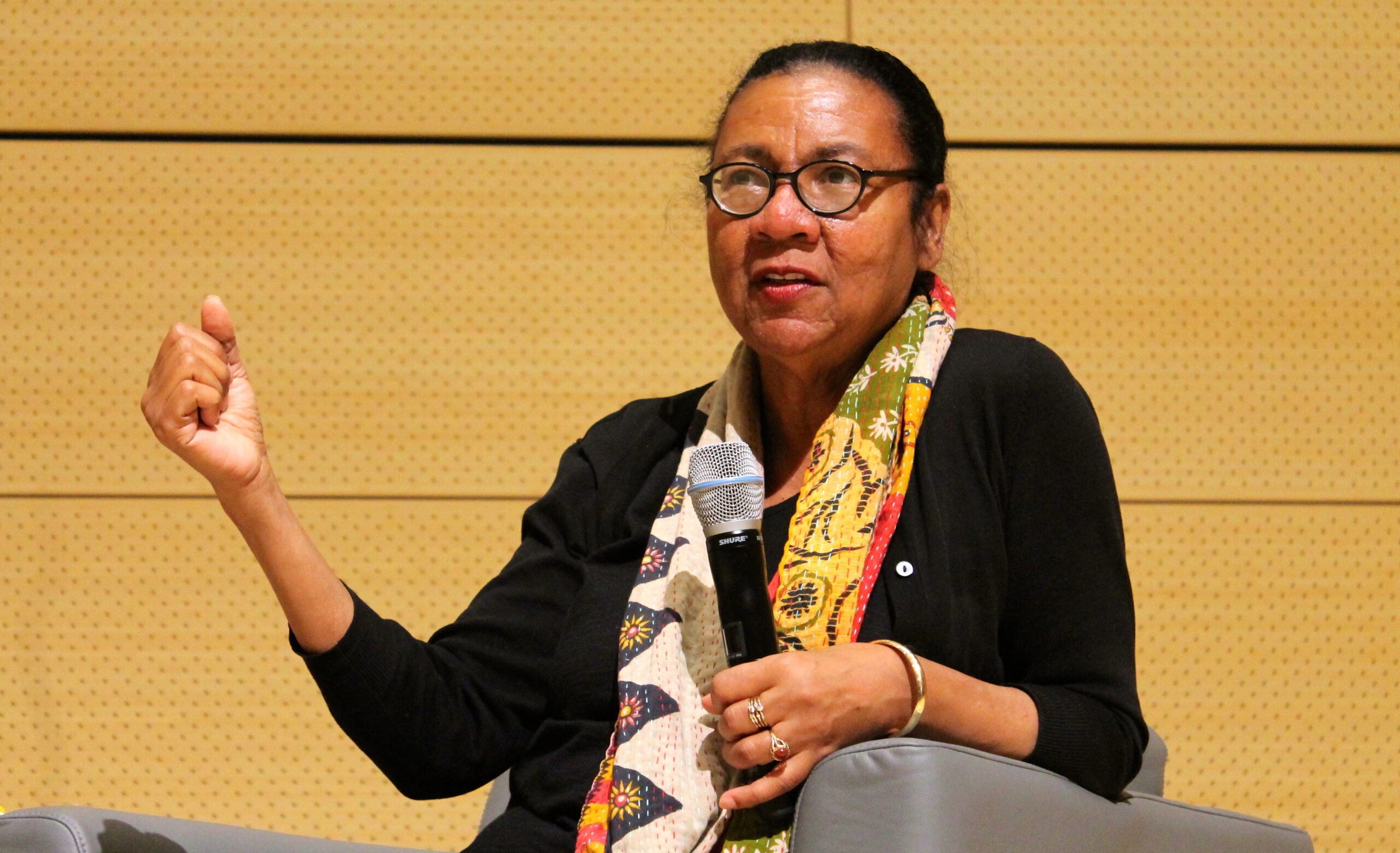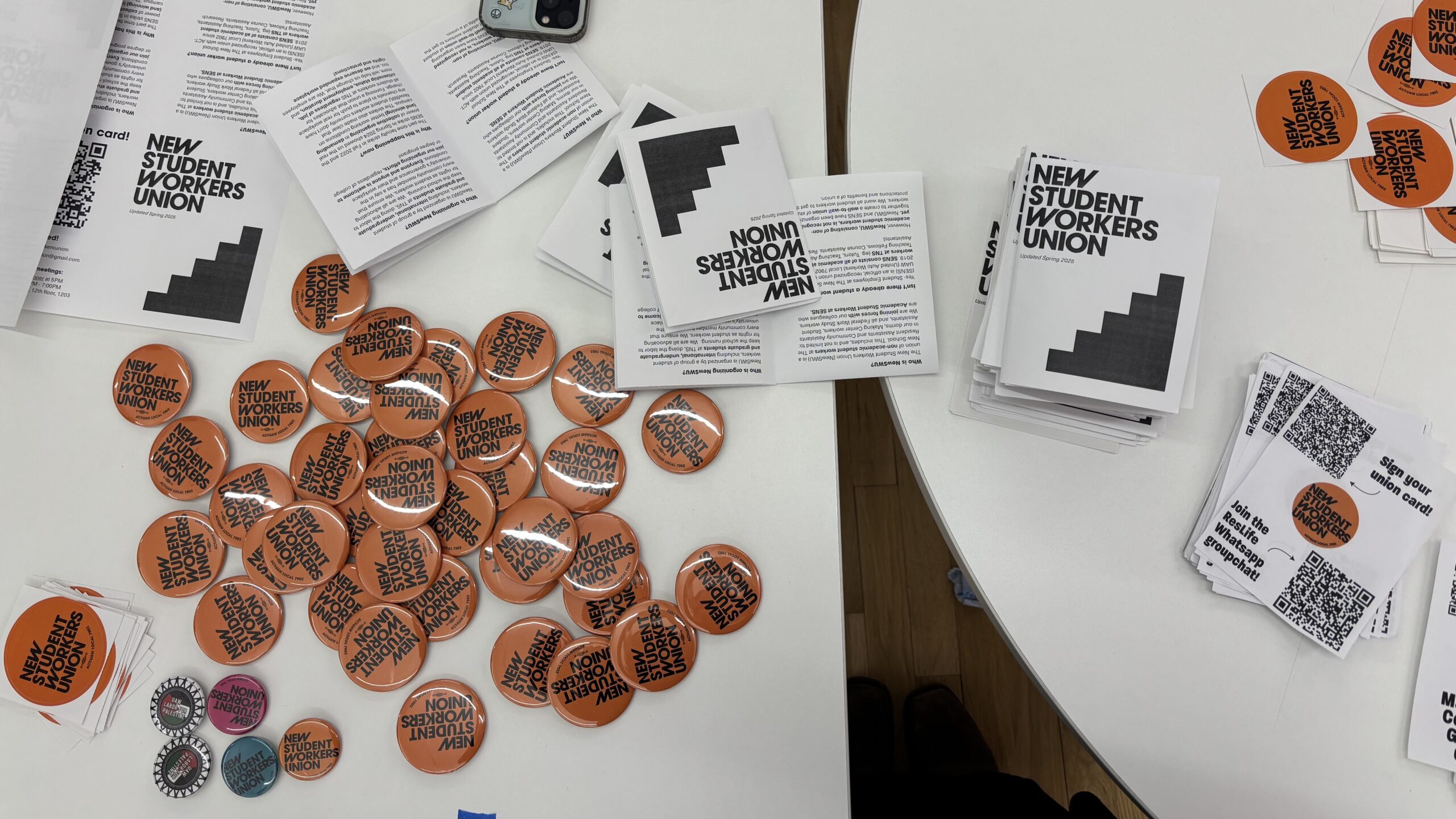The New School community mourns the loss of author and activist bell hooks, a New School scholar-in-residence from 2013-2016.
Born Gloria Jean Watkins, bell hooks died on Dec. 15 at the age of 69. She wrote over 30 books, including “Ain’t I a Woman? Black Women and Feminism,” and gained international renown for her work on gender, race, class, spirituality and education. In 2020, she was named the 1984 Woman of the Year by Time, and she won numerous awards, including the American Book Award.
Eugene Lang College of Liberal Arts Literature Professor Stephanie Browner, a special advisor to New School President Dwight McBride and former Lang dean, was a close friend of hooks for 20 years. Hooks and Browner first met at Berea College in Berea, Kentucky, where Browner was the dean of faculty and an English professor, and where hooks would become a professor-in-residence.
“I knew her family and she knew mine and so it was just a deep, deep friendship and also related to institutional work,” Browner told The New School Free Press. “Just as I was coming to New York, she was selling her New York apartment … I ended up filling my New York apartment with her hand-me-downs.”
Early in her tenure as the Lang dean, Browner invited hooks to The New School in November, 2013, for what would be the first of five week-long residencies at the university. In her first residency, hooks led discussions about race, gender and patriarchy to overflowing audiences. She also conducted a class with 25 New School students on feminist politics and activism.
“We were always very serious about getting her with students in a setting that was more intimate and she always agreed to do that,” Browner said.
In her next four residencies, hooks worked with the university to lead discussions with prominent figures on topics including gender, race, class, the LGBTQ+ community, and teaching to transgress.
“She never wanted to be a solo speaker, she always wanted to be in conversation, either with one other person or on a panel,” Browner said.
Recordings of her discussions with Melissa Harris-Perry, Beverly Guy-Sheftall, Gloria Steinem, Laverne Cox, Marci Blackman, Shola Lynch and Janet Mock have each been viewed over 100,000 times on YouTube. Her 2014 discussion with Cornel West has over 200,000 views.
According to Browner, hooks’s professional work was always intertwined with the personal.
“With bell, everything is both personal and critical and political, and how we live is part of how we think, and how we think is part of how we live,” Browner said.
In practice, hooks would take every opportunity to connect with people, whether they be an airport ticket attendant or a college student, Browner said.
“She would just kinda hang out in the lobby of her hotel on 13th Street,” Browner said. “She’d hold court, and people would hang out and come talk with her.”
Browner remembered fondly the honesty and wit that hooks brought to their friendship, something she also extended to the students whom she met.
“Someone would sort of say, ‘Oh, woe is me’ on this or that and she would say, ‘Well, I don’t know, what about this? What made you think patriarchy wasn’t gonna shape your most intimate life?’” Browner said. “She had that kind of humor and honesty. But still, love. Love was at the center of her work.”
For New School students, meeting hooks could often be intimidating, but hooks sought to break down hierarchies between herself and students, Browner said.
“She had zero interest in that sort of formality or that kind of fandom,” Browner said.
For Browner memories of hooks will always be both of a personal nature and about the movements that hooks advocated for.
“She would hang out at my house on my porch in Kentucky — she loved my kids’ junk food,” Browner said. “For five years I brought her to New York, and we’d party in my apartment. We always danced.”
As the New School community looks for ways to honor hooks’s legacy and contributions to The New School, Browner suggested focusing on continuing to make progress in the social movements that hooks contributed to.
“That’s what would be meaningful to her,” Browner said.







